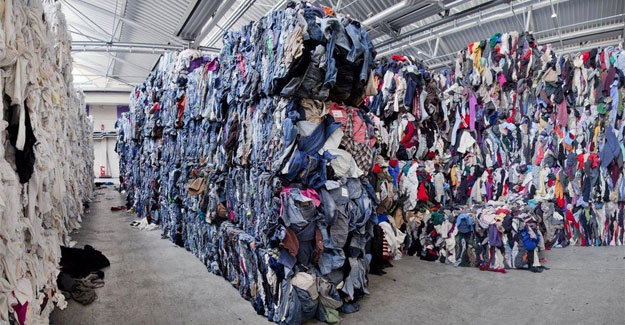
Sustainability Under Threat From Fast Fashion ‘Revenge’ Shopping?
A new study questions whether the growth of sustainability in apparel is under threat as fast fashion demand ramps up after last year's lockdown-linked lull. ‘The Sustainability Edit 2021′, published by Edited, points to retailers converting their assortments to be more environmentally conscious with mentions of “sustainability” becoming a staple feature in retailers’ communications to consumers but notes the revival of fast fashion demand. It adds the pandemic “reduced the sheer volume of newness flooding the market at hyper-speed last year” but says now “big drops are back in a big way”. Indeed, fast fashion new arrivals for 2021 are up 19%. “Retailers are producing more than ever to capitalise on the revenge dressing phenomenon as people are buying for events to make up for lost time over lockdown,” reads the report. “We know fast-fashion businesses are characterised by landing high amounts of new styles frequently, abandoning the seasonal drop models established by more traditional retailers. Arrivals hit their lowest point last April when the US passed one million confirmed cases. “However, as vaccinations rolled out and the world regained some normalcy, newness ramped up once more. The number of new styles dropped by fast fashion retailers is poised to outpace pre-pandemic levels. Since the start of the year, arrivals are up 19% year-on-year (YoY), down only 2% vs. 2019. As retailers delivered on the Hot Vax Summer, May to August saw a significant trajectory, with newness up 38% YoY and 7% 2019.” Other findings of the report, which embraces data and AI to outline the practices retailers are taking for a greener future, include sustainability going beyond apparel with footwear making up 7% of new sustainable products for menswear and 3% for womenswear and; sustainable apparel will cost the customer more. “Retailers have enough on their plates dealing with supply chain challenges and labour shortages, so trying to keep up with the ever-changing trends in customer preferences and sustainability can be overwhelming,” says Kayla Marci, market analyst, Edited. The report also includes recommendations for how retailers can shape their assortments to be more sustainable, the best pricing metrics behind eco-friendly products and more. Key takeaways for retailers include:
- A tight sustainability timeline is required – The Sustainability EDIT states that what companies do in the next five to 10 years will be critical. To strive towards net-zero emissions, retailers need to revamp their processes at every point in the value chain and not rely solely on offsetting excess emissions.
- Retailers should move away from 100% cotton – Fashion’s overreliance on cotton has led to environmental and political impacts while natural resources are at stake. Retailers should be looking beyond conventional materials to create more responsible garments.
- Education is imperative – To encourage consumers to dispose of clothing with the planet in mind, retailers need to provide education and incentives.
- Retailers must get creative with upcoming runways – Given the high environmental impact of runway season, digital solutions such as live-streamed runways, samples and immersive showrooms can help offset the impact of traditional fashion processes – helping to produce fewer physical goods.
Textile Excellence
If you wish to Subscribe to Textile Excellence Print Edition, kindly fill in the below form and we shall get back to you with details.












